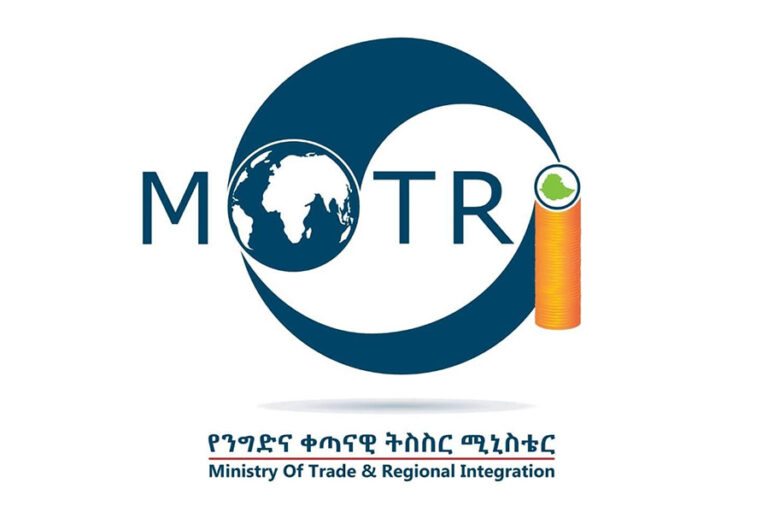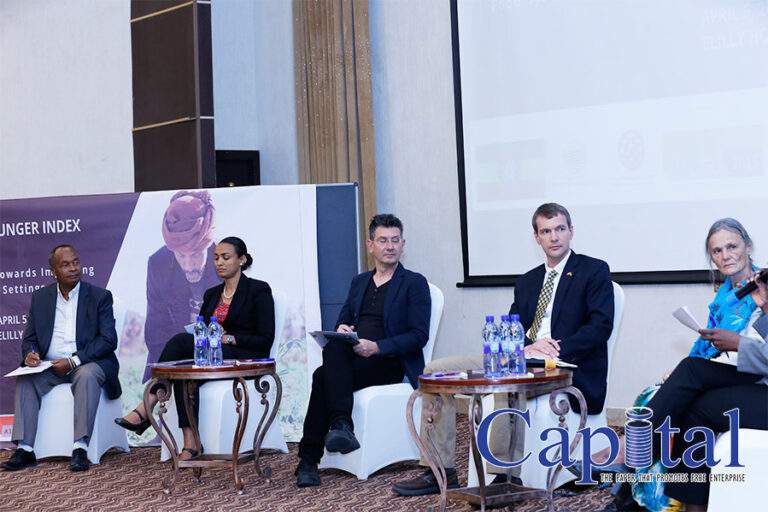Ministry of Trade and Regional Integration announces that it is engaging on developing different policies and laws to harmonize the trading scheme. The first trade policy tables for discussion on the way to be ratified by the cabinet.
Experts argue that lack of attention for the trade sector is one the problems seen in the market. They stated that it is embattled by market chain, inflation, hording and international trade and completion and standards because of lack of proper understanding and attention given by the government body.
Despite efforts by relevant government apparatuses to tackles challenges, in the local market, hoarding, smuggling, overstating price increases, and uncontrollable and lack of adequate supply in terms of goods and services have been major problems over the past several years. The Ministry has attempted to come up with solutions by imposing laws and controlling mechanisms to smash illegality and or supply products on its own but things have not improved.
For international trade; contraband, contract defaults, artificial rates and weak export earnings have been major challenges.
As part of its efforts, the government has been taking different initiatives and drafting guidelines, policy and other legal rules to govern the sector in a holistic approach.
One of that is drafting the first national trade policy for the country which recently, Gebremeskel Chala, Minister of Trade and Regional Integration (MoTRI) stated it is on the final stage of realization.
The policy that would give a clear picture for the commerce has been tabled to be discussed with stakeholders to get feedback before it’s sent to the Council of Ministers for ratification. “We hope in the near future it will be ratified,” the Minister said.
Similar to the trade policy, MoTRI is also developing a national quality policy that may contribute to expand the local and international.
Ethiopia has formed relevant National Quality Infrastructure (NQI) agencies but it does not have a policy framework that shall lead the agencies.
The government aimed that the policy shall abide by legal framework that allows the country to be competitive, and will allow Ethiopia to develop required legal frameworks under the goal of the policy.
Gebremeskel said that the quality policy will be discussed with relevant stakeholders before it is sent to the cabinet.
As part of massive efforts to improve the commerce, MoTRI has also revised the national legal metrology regulation, which is a five decade old directive.
Ministry streamlines policies to bolster commerce
Soaring construction costs brings university projects to a standstill
Contractors working on government university projects halt construction owing to price hikes in construction materials.
According to Girma Habtemariam, president of the contractor’s association, contractors working on more than 700 projects of government universities have stopped their operations.
As Girma elaborates so far contractors have about 756 projects in universities across the country with the total cost of the projects being worth about 92 billion birr.
As an option, contractors have requested the government to revise their agreements. ” We have submitted a letter to the Ministry of Finance to revise the agreement, mainly the price,” stated Girma.
The ministry has also been in talks with pertinent stakeholders on the issue and as Girma clarifies, his association has high hopes that the issue will be solved sooner rather than later.
“The prices of construction materials are heaping up from day to day,” lamented the head of the association.
Construction delays more often than not occur due to the escalation in material prices, which contractors also underline as one of the major challenges they face in their projects. According to the central statistics service’s latest update on the month of February, the price of construction materials has shown an increase of 17.9 percent up from 15 percent in January.
Most of the stakeholders claim that there are few control measures taken by the government on the market, and they pin this as the main problem of the price spike.
The illegal increasing price of cement in the open market for the past several months has sparked challenges in the construction industry. To this end, government has been taking a number of steps to improve the supply chain and increase the price of cement which is the main input for the construction sector.
Cement producers on the other hand are tackling a long list of challenges including, unfavorable supply-demand balance, higher cement prices, escalating production costs, low utilization rates, social unrest, and a lack of foreign currency.
The Ministry of Mines said the problem related to cement production and supply is due to the fact that the Association of Manufacturers and Producers does not pay attention to cement production. In a letter to 14 cement factories a week ago, the ministry said man-made problems in cement production and supply were on the rise, coupled with the lack of close supervision of cement production, factory management and limited producers.
Based on the problems, the Ministry of Mines conducted a joint survey with the relevant institutions in a letter to the companies, highlighting the major problems identified in the study.
“The main problem is that the management members and sector leaders of the cement factories have not paid due attention to the production of cement. We are waiting on the government to make the rearrangements on the contract, considering the current situation,” opined Girma.
Ethiopia’s food insecurity, malnutrition on steep rise, warns report
According to the global hunger index (GHI) report the state chronic food insecurity and malnutrition in Ethiopia is categorized as serious. With a score of 21.1, Ethiopia ranks 90th out of the 116 countries with sufficient data to calculate GHI.
Also according to the report, since 2000 Ethiopia’s GHI score has decreased by a 29.4 points decline of 55 percent. “The GHI score is failing at an ever slower rate meaning that progress in the fight against chronic food in security and malnutrition is at a deceleration while levels of malnutrition continue to be high and concerning,” underlines the report.
According to the index, nearly 40 percent of the population in Tigray Afar and Amhara are affected by the conflict and face an emergency level of acute food insecurity. Emergency out comes are also expected in the worst affected drought areas in the south and south east parts of the region.
 Conflict, desert locust inversion, climate shocks such as flood and drought, Covid-19 impact, decline in budgetary support and the large nation trade deficit, driving high inflation and depreciation are key drivers of humanitarian needs. Also the current conflict between Russia and Ukraine further threatens the global and Ethiopian food insecurity with the disruption in the agriculture supply chain which about 25 percent Ethiopia’s wheat import comes from Ukraine in addition to the rising food price around the world.
Conflict, desert locust inversion, climate shocks such as flood and drought, Covid-19 impact, decline in budgetary support and the large nation trade deficit, driving high inflation and depreciation are key drivers of humanitarian needs. Also the current conflict between Russia and Ukraine further threatens the global and Ethiopian food insecurity with the disruption in the agriculture supply chain which about 25 percent Ethiopia’s wheat import comes from Ukraine in addition to the rising food price around the world.
Ethiopia loses about 16.5 percent of its GDP each year to the long term effect of chronic malnutrition and stunning while it suffers losing 55.5 billion birr associated with child under nutrition.
As the report indicates, in 2021 Ethiopia experienced the largest annual increase in the number of people facing food crises or worse.
The mid-year review of the Ethiopia humanitarian response plan for 2021 showed that humanitarian partners were providing 12.8 million people with food assistance, 8 million of whom receive other types of assistance.
In addition 2 million people receive nonfood assistance despite the fact that 2.62 million people are internally displaced.






